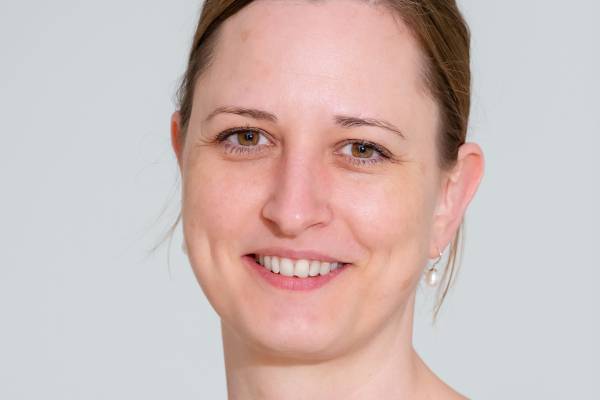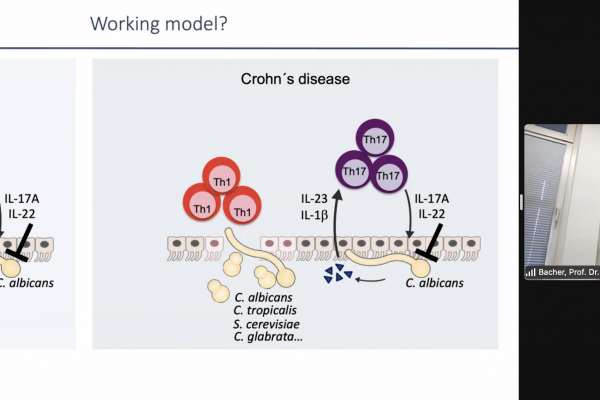Prize-winning Researcher Professor Petra Bacher Presents Cutting-Edge Findings in miGut-Health Video Call
The latest consortium-wide video call on 26 October 2023 opened with a presentation from Professor Petra Bacher, who holds the Schleswig-Holstein Excellence-Chair from the Institute of Immunology and Institute of Clinical Molecular Biology, UKSH, and is also a researcher in miGut-Health. In September of this year, Prof. Bacher received the Georges-Köhler Prize, awarded annually by the German Society of Immunology (DGfI) to early career scientists whose work has made an outstanding contribution to a better understanding of the immune system. As a member of the Cluster of Excellence "Precision Medicine in Chronic Inflammation" (PMI), Prof. Bacher recently contributed to an article, published in the renowned Nature Medicine magazine, that discovered the role of gut commensal and food-derived yeasts as direct activators of altered immune responses in Crohn's disease.
The basis of Prof. Bacher's research lies in the interaction of our immune system with the microbiome, i.e. the microorganisms living in and on our body. T helper cells, a type of white blood cell, can specifically recognise a particular antigen and trigger an immune response that matches that antigen. By understanding how the immune system interacts and regulates interactions with different microbes, it is possible to define how homeostatic interactions are maintained in healthy people and to identify what differs in people with chronic inflammatory diseases.
Previously, Prof. Bacher and her research team developed an innovative method for the direct analysis of disease-relevant T cell reactions in humans. This method allows for the characterisation of antigen-specific CD4+ T cells directly from human blood or tissue samples. It provides answers to a variety of clinical questions, including the identification of new patient-specific diagnostic parameters and new therapeutic targets.
After looking at T cell responses to yeast fungi in blood and tissue samples from patients and comparing them to healthy individuals, Prof. Bacher and her research team found a significantly increased T cell response in Crohn's disease patients. The researchers investigated the reaction to both yeasts that are part of the natural, healthy microbiome and yeasts that enter the intestine primarily through food, such as cheese. They established that in the patient cohort, there are mainly T cells whose T cell receptors can react against many different Candida and Saccharomyces species. This led them to conclude that yeast-specific T cells could contribute to the chronic inflammatory reaction seen in Crohn’s disease.
This data provides first evidence for a role of yeasts as drivers of aberrant T cell reactions in Crohn's disease. Now, additional research will be conducted to investigate their direct role in the pathophysiology of the disease. These findings may also lead to the development of new therapeutic strategies that target the intestinal yeasts or the altered T cell response.



